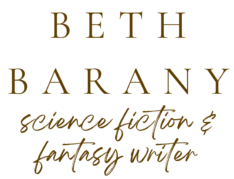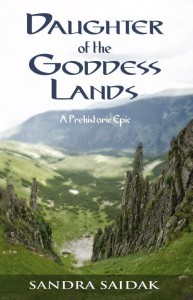Welcome indie author, Sandra Saidak, sharing about her unusual kick-ass heroine, Kalie, in her historical fantasy, Daughter of the Goddess Lands.
***
I can still remember my reaction to reading the story of the Trojan War in my freshman year of high school. I threw the book against the wall. It wasn’t because Paris abducted Helen and carried her against her will to a land that blamed her for the war that followed. It wasn’t the abductions of Chrysies or Briseis, or the way Achilles and Agamemnon fought over who had the right to rape which “prize”.
It was the casual way it was all described. It was the fact that in this story the women not only didn’t fight back—they didn’t even have a voice! And it was the way everyone—both in the story and in the classroom—was ok with it.
I was fortunate in that by the time I started college, Alien had been released, The Clan of the Cave Bear was published, and The Mists of Avalon came out soon after. Each of these works features a kick-ass heroine—although each is very different.
While growing up—in a safe and healthy environment, I am grateful to say—I was exposed to many stories of violence against women, both fiction and non-fiction. When I sat down to write Daughter of the Goddess Lands, it was in part to find the answers to questions I had carried with me for years: why is there so much violence against women? Why are the victims themselves blamed? Why don’t women fight back—or is it that they do, but somehow those stories don’t make it to the pages of a book or headline news?
At the beginning of Daughter of the Goddess Lands, Kalie doesn’t look like much of a heroine. She is suffering from PTSD after surviving an assault that most of her peaceful, goddess-worshipping countrymen can’t even understand. But when the men who abducted Kalie return—in larger numbers—and threaten all of her people, Kalie takes action—in a rather unusual way. The warriors demand slaves as part of a tribute which will make them spare Kalie’s town. In a move worthy of the martial art aikido (the philosophy of non-resistance), Kalie insists on giving the men exactly what they ask for. She leads a group of volunteers to go with the horsemen as slaves—where they will destroy their enemies on their own turf, so they will never threaten anyone else again.
Some of the women opt for traditional—and immediately satisfying— solutions: poisoning their captor’s food and slitting the throats of their rapists while they sleep. But those who do so pay with their lives while accomplishing very little in the long run. Kalie’s weapons are her courage, her endurance, her intellect and her storytelling. When Kalie stands as a storyteller in front of the powerful men of the tribe, she is physically vulnerable and powerless in the tribal hierarchy. But she is standing tall. She studies her enemies, and learns how to take charge of the emotions in the crowd. Eventually, with her stories, Kalie gets many in the tribe—both men and women— to change how they see what is honorable and what is right.
That, too, is power.
***
 Sandra Saidak graduated San Francisco State University in 1985 with a B.A. in English. She is a high school English teacher by day, author by night. Her hobbies include reading, dancing, attending science fiction conventions, researching prehistory, and maintaining an active fantasy life (but she warns that this last one could lead to dangerous habits such as writing). Sandra lives in San Jose with her husband Tom, daughters Heather and Melissa, and two cats. Her first novel, “Daughter of the Goddess Lands”, an epic set in the late Neolithic Age, was published in November, 2011 by Uffington Horse Press. Learn more at http://sandrasaidak.com/
Sandra Saidak graduated San Francisco State University in 1985 with a B.A. in English. She is a high school English teacher by day, author by night. Her hobbies include reading, dancing, attending science fiction conventions, researching prehistory, and maintaining an active fantasy life (but she warns that this last one could lead to dangerous habits such as writing). Sandra lives in San Jose with her husband Tom, daughters Heather and Melissa, and two cats. Her first novel, “Daughter of the Goddess Lands”, an epic set in the late Neolithic Age, was published in November, 2011 by Uffington Horse Press. Learn more at http://sandrasaidak.com/



